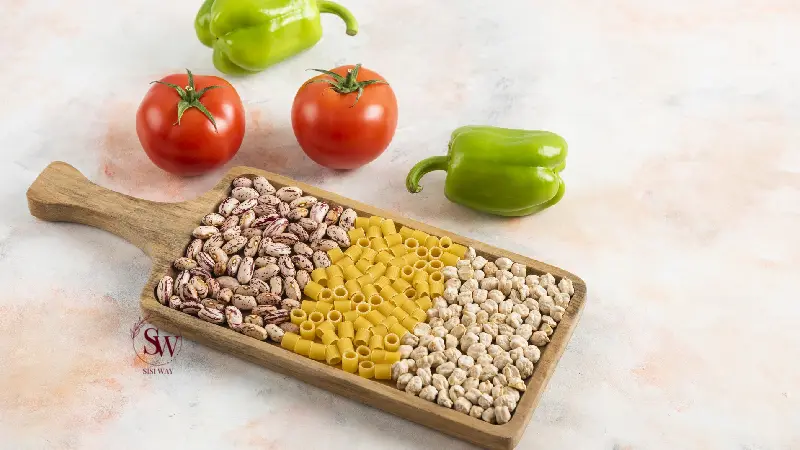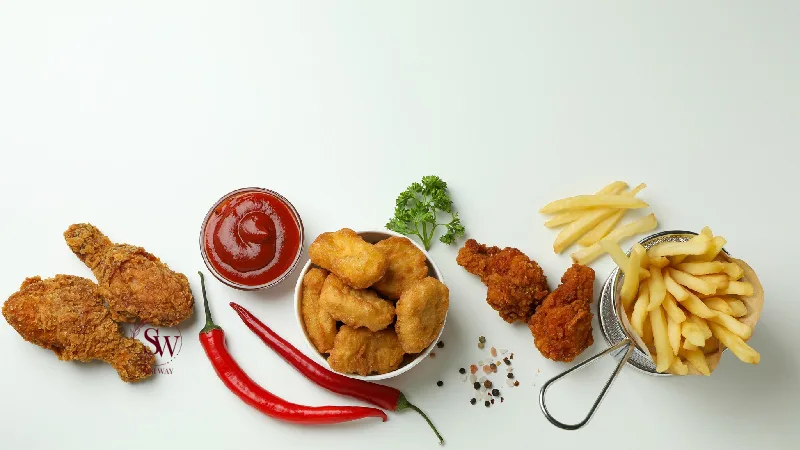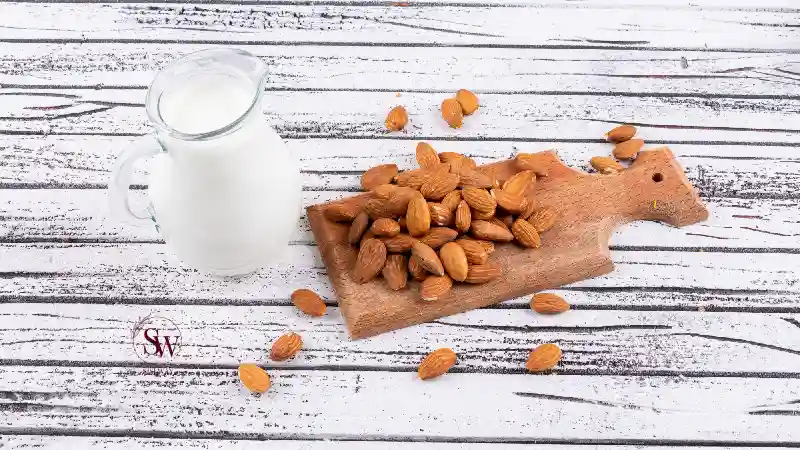
Food to Avoid After Cesarean Section
After undergoing a cesarean section (C-section), it is crucial for new mothers to prioritize their recovery and overall well-being. One aspect that plays a significant role in the healing process is maintaining a healthy diet. While there are various foods that support postpartum recovery, it is equally important to be aware of certain foods that should be avoided during this period. In this article, we will explore the foods that new mothers should avoid after a cesarean delivery to promote optimal healing and minimize discomfort.

-
Spicy and Irritating Foods:
Spicy and irritating foods can pose challenges for new mothers recovering from a cesarean section. These foods, known for their heat and pungency, may cause gastrointestinal distress and discomfort, especially around the surgical incision site. The consumption of spicy foods can potentially lead to digestive issues, such as heartburn or upset stomach, hindering the healing process. To promote a smoother recovery, it is advisable for new mothers to avoid spicy and irritating foods until they have fully healed from their C-section, allowing their bodies to regain stability and minimize any potential discomfort.
Here are five examples of spicy and irritating foods that new mothers may want to avoid after a cesarean section:
- Chili Peppers: Known for their intense heat, chili peppers can irritate the digestive system and potentially cause discomfort or digestive issues.
- Hot Sauces: Condiments like hot sauces, particularly those made with spicy peppers or chili extracts, can add significant heat to meals and may contribute to digestive distress.
- Curry: Curry dishes often contain a blend of spices and herbs, including chili powder, cayenne pepper, and turmeric, which can be irritating to the digestive system for some individuals.
- Salsa: While salsa adds flavor to many dishes, it often includes ingredients like jalapeno peppers or chili powder, which can be spicy and irritating to the digestive tract.
- Spicy Condiments: Certain condiments, such as mustard, horseradish, or wasabi, can provide a fiery kick to meals but can also be irritating to the digestive system, especially during the post-C-section recovery period.
It’s important to note that the sensitivity to spicy and irritating foods can vary among individuals. It’s best for new mothers to listen to their bodies and consult with their healthcare provider if they have any concerns about specific foods affecting their recovery.

-
Gas-Producing Foods:
Certain foods are known to cause gas and bloating, which can be particularly uncomfortable for women who have recently undergone a C-section. Examples of gas-producing foods include beans, lentils, broccoli, cabbage, onions, and carbonated beverages. Limiting the consumption of these foods can help alleviate postoperative discomfort.
Here are five examples of gas-producing foods that new mothers may want to limit or avoid after a cesarean section:
- Beans and Legumes: Foods like beans, lentils, and chickpeas are known to produce gas due to their high fiber content and complex carbohydrates.
- Cruciferous Vegetables: Vegetables such as broccoli, cauliflower, cabbage, and Brussels sprouts are nutritious but can be gas-inducing due to their high fiber and sulfur content.
- Onions and Garlic: While flavorful, onions and garlic contain compounds that can contribute to gas production and digestive discomfort for some individuals.
- Carbonated Beverages: Fizzy drinks like soda, sparkling water, and carbonated beverages can introduce excess air into the digestive system, leading to increased gas and bloating.
- Dairy Products: Certain dairy products, such as milk, cheese, and ice cream, can be challenging to digest for some individuals, causing gas and bloating, particularly if they have lactose intolerance or sensitivity.
It’s important to note that everyone’s tolerance to gas-producing foods may vary. Some individuals may be more sensitive to these foods than others. Listening to your body and making dietary adjustments based on your personal comfort levels can help alleviate gas-related discomfort after a cesarean section. Consulting with a healthcare provider or a registered dietitian can provide further guidance for your specific needs.
Also read: Best Stretch Mark Cream for Pregnancy

-
High-Fat and Fried Foods:
High-fat and fried foods can be heavy on the digestive system and may contribute to constipation, a common issue after a C-section. These foods also tend to be low in essential nutrients, making it important to opt for healthier alternatives that support healing and provide necessary nutrients.
Here are five examples of high-fat and fried foods that new mothers may want to limit or avoid after a cesarean section:
- French Fries: Deep-fried potatoes can be high in unhealthy fats and are often cooked in oils that can contribute to inflammation and digestive discomfort.
- Fried Chicken: Breaded and deep-fried chicken can be rich in saturated fats, which can be heavy on the digestive system and may contribute to postoperative discomfort.
- Fast Food Burgers: Fast food burgers typically contain high-fat meat, processed cheese, and mayonnaise, all of which can be challenging to digest and provide little nutritional value.
- Pizza: While pizza can be a popular comfort food, the combination of greasy toppings, processed meats, and high-fat cheese can make it heavy on the stomach and potentially contribute to digestive issues.
- Pastries and Deep-Fried Snacks: Foods like donuts, croissants, and deep-fried snacks (e.g., samosas, spring rolls) are often high in unhealthy fats and can be difficult to digest, leading to discomfort and potential inflammation.
Choosing healthier alternatives, such as grilled or baked options, lean proteins, and incorporating more fruits, vegetables, and whole grains into your diet can support the recovery process after a cesarean section. It’s important to focus on nourishing your body with nutrient-dense foods rather than those high in unhealthy fats. Consulting with a healthcare provider or a registered dietitian can provide personalized guidance based on your specific needs and preferences.

-
Caffeine and Energy Drinks:
Caffeine, found in coffee, tea, and energy drinks, can interfere with sleep patterns and potentially exacerbate postpartum fatigue. It is advisable to limit caffeine consumption or opt for decaffeinated alternatives to promote better rest and recovery.
Here are five examples of caffeine-containing beverages and energy drinks that new mothers may want to limit or avoid after a cesarean section:
- Coffee: Coffee is a popular caffeinated beverage that can interfere with sleep patterns and potentially exacerbate postpartum fatigue. It is advisable to limit coffee consumption or opt for decaffeinated alternatives.
- Tea: While tea generally contains less caffeine than coffee, certain types, such as black tea and green tea, still have caffeine content. Moderation or switching to caffeine-free herbal teas can be beneficial.
- Energy Drinks: Energy drinks are highly caffeinated and often contain additional stimulants. These beverages can disrupt sleep, increase heart rate, and contribute to dehydration, which are not conducive to optimal recovery.
- Soda: Many carbonated soft drinks, including colas and certain flavored sodas, contain caffeine. It’s important to check labels and choose caffeine-free options or healthier alternatives like infused water or herbal beverages.
- Chocolate: Chocolate, particularly dark chocolate, contains caffeine. While the amount of caffeine in chocolate is generally lower than that in coffee or energy drinks, it can still contribute to overall caffeine intake.
During the post-C-section recovery period, it’s essential to prioritize rest and quality sleep to support healing. Limiting or avoiding caffeine and energy drinks can help achieve that goal. Opting for non-caffeinated beverages or alternatives like herbal teas and water can aid in hydration and promote overall well-being. It’s always advisable to consult with a healthcare provider for personalized recommendations based on individual needs and health status.

-
Processed and Junk Foods:
Processed and junk foods, such as fast food, sugary snacks, and sodas, offer little nutritional value and can hinder the healing process. They may contribute to inflammation and weight gain, which can be counterproductive to a healthy recovery. Focus on whole, nutrient-dense foods instead.
Here are five examples of processed and junk foods that new mothers may want to limit or avoid after a cesarean section:
- Potato Chips: Potato chips and other similar snack foods are often high in unhealthy fats, sodium, and additives. They provide little nutritional value and can contribute to inflammation and weight gain.
- Sugary Snacks: Candies, cookies, pastries, and other sugary snacks are typically high in refined sugars, which can lead to energy crashes, weight gain, and potential inflammation. These foods offer little in terms of essential nutrients.
- Fast Food: Fast food items such as burgers, fries, and fried chicken are often heavily processed, high in unhealthy fats, sodium, and artificial additives. They lack the necessary nutrients for postpartum recovery and can contribute to digestive discomfort.
- Processed Meats: Deli meats, sausages, hot dogs, and other processed meats are often high in sodium, preservatives, and unhealthy fats. They can increase the risk of inflammation and are generally low in essential nutrients.
- Sugary Drinks: Sugary beverages like soda, fruit juices, and sweetened drinks can be high in added sugars and provide little nutritional benefit. These drinks can contribute to weight gain and energy imbalances.
Instead of processed and junk foods, new mothers should focus on whole, nutrient-dense foods that support healing and provide essential nutrients. Incorporating fresh fruits, vegetables, lean proteins, whole grains, and healthy fats into meals and snacks can promote optimal recovery and overall well-being. It’s recommended to consult with a healthcare provider or a registered dietitian for personalized dietary guidance based on individual needs and preferences.

-
Citrus Fruits:
While citrus fruits are a great source of vitamin C, they are also acidic and may cause discomfort or irritation for some women after a C-section. It is advisable to consume them in moderation or choose other vitamin C-rich foods that are less acidic, such as strawberries, kiwis, or leafy greens.
Here are five examples of citrus fruits that new mothers may want to consume in moderation or choose alternatives due to their acidic nature:
- Oranges: Oranges are delicious and packed with vitamin C, but their high acidity may cause discomfort or irritation for some individuals, particularly those recovering from a cesarean section. Moderation is key.
- Grapefruits: Grapefruits are known for their tangy flavor and vitamin C content. However, their acidity can be bothersome for some individuals, so it’s advisable to consume them in moderation.
- Lemons: Lemons, with their strong sour taste, are highly acidic. While they can be used sparingly for flavoring dishes or beverages, excessive consumption may lead to discomfort or irritation.
- Limes: Limes share a similar acidic profile with lemons and can have comparable effects on those with sensitive digestive systems. It’s best to use them in moderation or consider alternative sources of vitamin C.
- Tangerines: Tangerines are sweet and refreshing, but they still possess some level of acidity. For individuals who experience discomfort or irritation from citrus fruits, reducing tangerine consumption or opting for less acidic fruits may be preferable.
It’s important to note that individual tolerance to citrus fruits can vary. Some women may be able to consume these fruits without any issues, while others may experience discomfort. It’s always a good idea to listen to your body and consult with a healthcare provider if you have concerns about specific foods affecting your recovery. There are alternative vitamin C-rich foods available, such as strawberries, kiwis, and leafy greens, that are less acidic and may be better tolerated.
Read more: Hormonal Changes after Pregnancy

-
Allergenic Foods:
If you have known food allergies or sensitivities, it is crucial to avoid those foods during the post-C-section recovery period. Allergic reactions can compound the challenges of healing and may lead to additional discomfort.
Here are five examples of allergenic foods that individuals may have allergies or sensitivities to:
- Peanuts: Peanuts are a common allergenic food and can cause severe allergic reactions in some individuals. It’s important to be cautious when consuming peanuts or products that may contain peanuts or peanut traces.
- Tree Nuts: Tree nuts, such as almonds, walnuts, cashews, and pistachios, are also known allergenic foods. Allergies to tree nuts can vary, so it’s important to be aware of any personal allergies or sensitivities.
- Shellfish: Shellfish, including shrimp, crab, lobster, and scallops, are common allergenic foods. Allergic reactions to shellfish can range from mild to severe, so it’s essential to exercise caution when consuming them.
- Eggs: Eggs are a potential allergenic food, with some individuals experiencing allergic reactions to the proteins found in eggs. It’s important to be aware of any egg allergies or sensitivities.
- Milk: Milk and dairy products are known allergenic foods. Some individuals may have lactose intolerance or milk protein allergies, which can cause digestive issues or allergic reactions.
It’s crucial for individuals with known allergies or sensitivities to avoid the specific allergenic foods that affect them. Reading food labels, discussing dietary restrictions with healthcare providers, and seeking guidance from allergists or registered dietitians can help individuals navigate their dietary choices and ensure their safety.

Can I Eat Egg after C-section Delivery?
Yes, in most cases, you can eat eggs after a cesarean section (C-section) delivery. Eggs are a good source of protein, vitamins, and minerals, making them a nutritious food choice for postpartum recovery. However, it’s essential to consider any personal allergies or sensitivities you may have. If you have a known egg allergy or sensitivity, it’s best to avoid eggs and consult with your healthcare provider for suitable alternatives. Additionally, if you’re unsure or have specific dietary concerns, it’s always advisable to consult with your healthcare provider or a registered dietitian for personalized guidance based on your individual needs.
Can I Eat Fish after C-section Delivery?
Yes, in most cases, you can eat fish after a cesarean section (C-section) delivery. Fish is a nutritious source of protein, omega-3 fatty acids, and various vitamins and minerals that can support postpartum recovery. However, it’s important to consider a few factors. Firstly, ensure that the fish you consume is low in mercury, as high levels of mercury can be harmful, especially during breastfeeding. Opt for fish varieties that are known to have lower mercury levels, such as salmon, trout, and sardines. Secondly, if you have any known allergies or sensitivities to fish, it’s best to avoid it or consult with your healthcare provider for suitable alternatives. As always, if you have specific dietary concerns or questions, it’s recommended to discuss them with your healthcare provider or a registered dietitian for personalized guidance based on your individual needs.
FAQ
Should I avoid spicy foods after a cesarean section?
It’s generally advisable to limit or avoid spicy foods after a cesarean section, as they can potentially cause digestive discomfort or irritation. However, individual tolerance may vary, so it’s best to listen to your body and make choices based on your personal comfort levels.
Can I eat dairy products after a cesarean section?
In most cases, you can consume dairy products after a cesarean section. However, if you have a known dairy allergy or lactose intolerance, it’s best to avoid or limit dairy consumption. Some individuals may also find that dairy products temporarily worsen digestive discomfort or bloating, so paying attention to your body’s response is important.
Are raw or undercooked foods safe to eat after a cesarean section?
It’s generally recommended to avoid raw or undercooked foods, including raw seafood, raw eggs, and undercooked meats, after a cesarean section. These foods pose a higher risk of foodborne illnesses, which can be especially problematic during the postpartum recovery period. It’s best to ensure that all foods are properly cooked and handled to reduce the risk of bacterial contamination.
Conclusion:
A healthy diet plays a vital role in the recovery process after a cesarean section. Avoiding certain foods that can cause irritation, gas, or digestive discomfort can help new mothers achieve optimal healing and minimize postoperative complications. It is important to consult with a healthcare professional or a registered dietitian for personalized dietary recommendations based on individual needs and preferences. By making mindful choices and focusing on nourishing, nutrient-dense foods, new mothers can support their recovery and overall well-being after a C-section.



